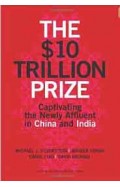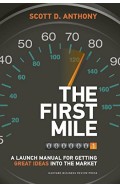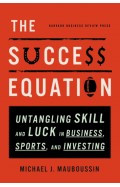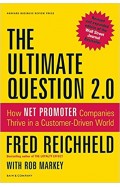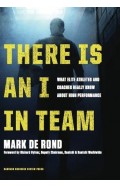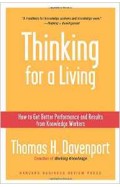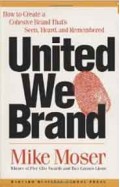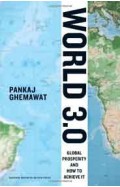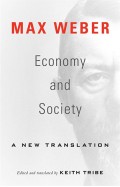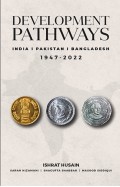The Capitali Manifesto Building A Disruptively Better Business
By: Umair Haque
-
Rs 11,045.75
- Rs 12,995.00
- 15%
You save Rs 1,949.25.
Due to constant currency fluctuation, prices are subject to change with or without notice.
| Book | |
| What's in the Box? | 1 x The Capitali Manifesto Building A Disruptively Better Business |
The Capitali Manifesto Building A Disruptively Better Business
By: Umair Haque
Rs 11,045.75 Rs 12,995.00 Ex Tax :Rs 11,045.75
Zubin Mehta: A Musical Journey (An Authorized Biography)
By: VOID - Bakhtiar K. Dadabhoy
Rs 892.50 Rs 1,050.00 Ex Tax :Rs 892.50
To Serve God And Wal Mart : The Making Of Chirstain Free
By: Bethany Moreton
Rs 1,947.50 Rs 3,895.00 Ex Tax :Rs 1,947.50
Myths Illusions and Peace: Finding a New Direction for America in the Middle East
By: Dennis Ross
Rs 766.50 Rs 1,095.00 Ex Tax :Rs 766.50
The Origins of Political Order From Prehuman Times to the French RevolutioN
By: Francis Fukuyama
Rs 4,045.50 Rs 4,495.00 Ex Tax :Rs 4,045.50
To Serve God And Wal Mart : The Making Of Chirstain Free
By: Bethany Moreton
Rs 1,947.50 Rs 3,895.00 Ex Tax :Rs 1,947.50
The 10 Trillion Prize Captivating thely Affluent in China and India
By: Michael J. Silverstein
Rs 1,865.75 Rs 2,195.00 Ex Tax :Rs 1,865.75
The First Mile A Launch Manual for Getting Great Ideas into the Market
By: Scott D. Anthony
Rs 1,950.75 Rs 2,295.00 Ex Tax :Rs 1,950.75
The Moment of Clarity: Using the Human Sciences to Solve Your Toughest Business Problems
By: Christian Madsbjerg
Rs 7,560.75 Rs 8,895.00 Ex Tax :Rs 7,560.75
The Success Equation Untangling Skill and Luck in BusinessSports and Investing
By: Michael J. Mauboussin
Rs 2,035.75 Rs 2,395.00 Ex Tax :Rs 2,035.75
The Ultimate Question 20 How Net Promoter Companies Thrive in a CustomerDriven World RevisedExpand
By: Fred Reichheld
Rs 2,545.75 Rs 2,995.00 Ex Tax :Rs 2,545.75
Thinking for A Living How To Get Better Performance And Results From Knowledge Workers
By: Thomas H. Davenport
Rs 5,350.75 Rs 6,295.00 Ex Tax :Rs 5,350.75
To Serve God And Wal Mart : The Making Of Chirstain Free
By: Bethany Moreton
Rs 1,947.50 Rs 3,895.00 Ex Tax :Rs 1,947.50
World 30 Global Prosperity and How To Achieve It
By: Pankaj Ghemawat
Rs 7,305.75 Rs 8,595.00 Ex Tax :Rs 7,305.75
Development Pathways
By: Dr. Ishrat Husain, Sarah Nizamani, Shagufta Shabbar and Masood Siddiqui
Rs 3,145.50 Rs 3,495.00 Ex Tax :Rs 3,145.50
Who Is Government? - The Untold Story of Public Service
By: Michael Lewis
Rs 5,995.00 Ex Tax :Rs 5,995.00
Big Nate: Attack of the Cheez Funk Breath Volume 32
By: Lincoln Peirce
Rs 2,245.50 Rs 2,495.00 Ex Tax :Rs 2,245.50
Zareen’s Pakistani Kitchen - Recipes from a Well-Fed Childhood
By: Zareen Khan
Rs 9,495.00 Ex Tax :Rs 9,495.00
Zubin Mehta: A Musical Journey (An Authorized Biography)
By: VOID - Bakhtiar K. Dadabhoy
Rs 892.50 Rs 1,050.00 Ex Tax :Rs 892.50
The Capitali Manifesto Building A Disruptively Better Business
By: Umair Haque
Rs 11,045.75 Rs 12,995.00 Ex Tax :Rs 11,045.75
To Serve God And Wal Mart : The Making Of Chirstain Free
By: Bethany Moreton
Rs 1,947.50 Rs 3,895.00 Ex Tax :Rs 1,947.50












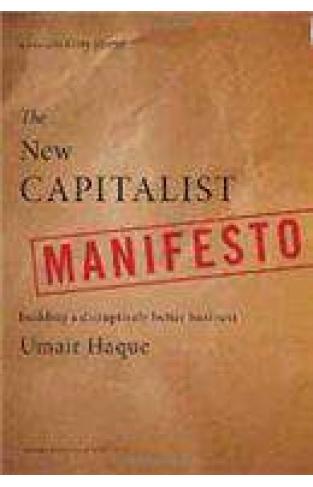
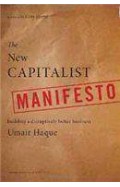
-120x187.jpg?q6)





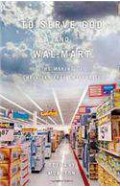








-120x187.jpg?q6)
